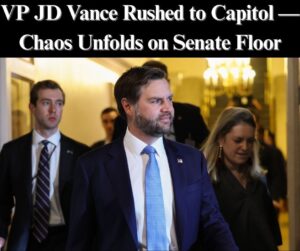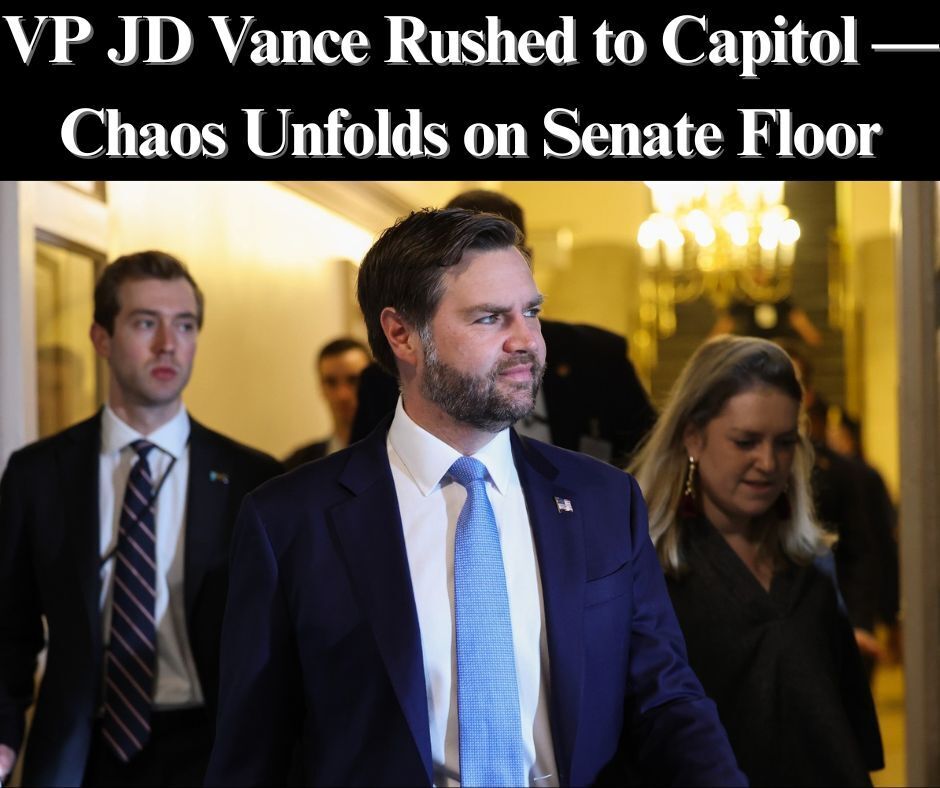Vice President JD Vance made two tie-breaking votes in the Senate on Tuesday to advance a $9.4 billion rescissions plan that will eliminate government funding for PBS and NPR.
The Senate tied 50-50 on two procedural votes to begin discussion of the multibillion-dollar expenditure clawback plan until Vance’s votes advanced the White House-requested proposal.
Three Republicans, Sens. Mitch McConnell (R-Ky.), Lisa Murkowski (R-Alaska), and Susan Collins (R-Maine), joined the Democrats in opposing the plan.
The package, passed by the House of Representatives last month, eliminates approximately $8.3 billion previously allocated to the US Agency for International Development (USAID) and $1.1 billion to the Corporation for Public Broadcasting (CPB), which partially funds National Public Radio (NPR) and the Public Broadcasting Service (PBS).
A projected $400 million decrease to the President’s Emergency Plan for AIDS Relief (PEPFAR) program is anticipated to be removed through an amendment before the measure is voted on.
“There was a lot of interest from our members on doing something on PEPFAR,” Senate Majority Leader John Thune (R-SD) told reporters after a meeting with Office of Management and Budget (OMB) Director Russ Vought. “That’s reflected in the substitute.”
“We hope that if we can get this across the finish line in the Senate, that the House will accept that one small modification that ends up making the package about a $9 billion rescissions package,” Thune added.
Collins defended her “no” vote by arguing that OMB didn’t provide senators with details about what programs would be scrapped as a result of the clawback.
“The rescissions package has a big problem — nobody really knows what program reductions are in it,” she said in a statement. “That isn’t because we haven’t had time to review the bill. Instead, the problem is that OMB has never provided the details that would normally be part of this process.”
Collins cited $2.5 billion in proposed cuts to the “Development Assistance account,” which she said “covers everything from basic education, to water and sanitation, to food security — but we don’t know how those programs will be affected.”
The Maine Republican also described the cuts to public broadcasters as “excessive” and expressed concern that PBS viewers would lose access to “popular programs like ‘Antiques Road Show’ and ‘Daniel Tiger’s Neighborhood.’”
“I share the frustration with the biased reporting by NPR, and I would support defunding it,” Collins continued. “Nevertheless, local TV and radio stations continue to provide important coverage.”
Collins went on to claim that CPB money in Maine supports the state’s emergency alert system and permits high school basketball games to be shown on television.
“We should know exactly what programs are affected and the consequences of recissions,” Collins stressed.
The Senate now has at least 10 hours to discuss the proposal before voting on changes and holding a final vote.
The House, which approved the plan 214-212 in June, would next have to review the Senate’s revisions to the law.
“Real Time” host Bill Maher has thrown his support behind conservative efforts to strip federal funding from NPR and PBS after hearing testimony from NPR CEO Katherine Maher, who previously criticized the First Amendment as an obstacle to journalism.
Katherine Maher — no relation to the liberal HBO host — appeared before the House Select Committee on the Department of Government Efficiency (DOGE), where she faced intense questioning from Republican members.

All GOP lawmakers on the panel support President Trump’s proposal to eliminate federal funding for both NPR and PBS.
During the hearing, Rep. William Timmons (R-SC) disclosed that NPR’s editorial staff includes 87 registered Democrats and zero registered Republicans.
The NPR CEO acknowledged the figure as “concerning” but insisted that neither her personal views nor those of her staff influence the organization’s journalistic coverage.
Bill Maher said during his online “Overtime” segment on CNN that the hearing made a strong case for privatizing both NPR and PBS.
Responding to a listener’s question, Maher repeatedly criticized his “namesake” for suggesting the outlet could remain impartial despite the overwhelming partisan imbalance within its newsroom.
